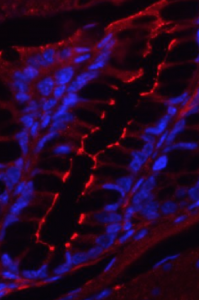New Approaches to Microbiome-Based Therapies
Over the last decade, our understanding of the composition and functions of the gut microbiota has greatly increased. To a large extent, this has been due to the development of high-throughput genomic analyses of microbial communities, which have identified the critical contributions of the microbiome to human health. Consequently, the intestinal microbiota has emerged as an attractive therapeutic target. The large majority of microbiota-targeted therapies aim at engineering the intestinal ecosystem by means of probiotics or prebiotics. Recently, a novel therapeutic approach has emerged which focuses on molecules that are secreted, modulated, or degraded by the microbiome and act directly on the host. Here, we discuss the advantages and challenges associated with the metabolite-based “postbiotic” approach, highlighting recent progress and the areas that need intensive attention and investigation over the next 5 years. The time is ripe for postbiotic therapies to be developed in the near future.
Visit full article page:

